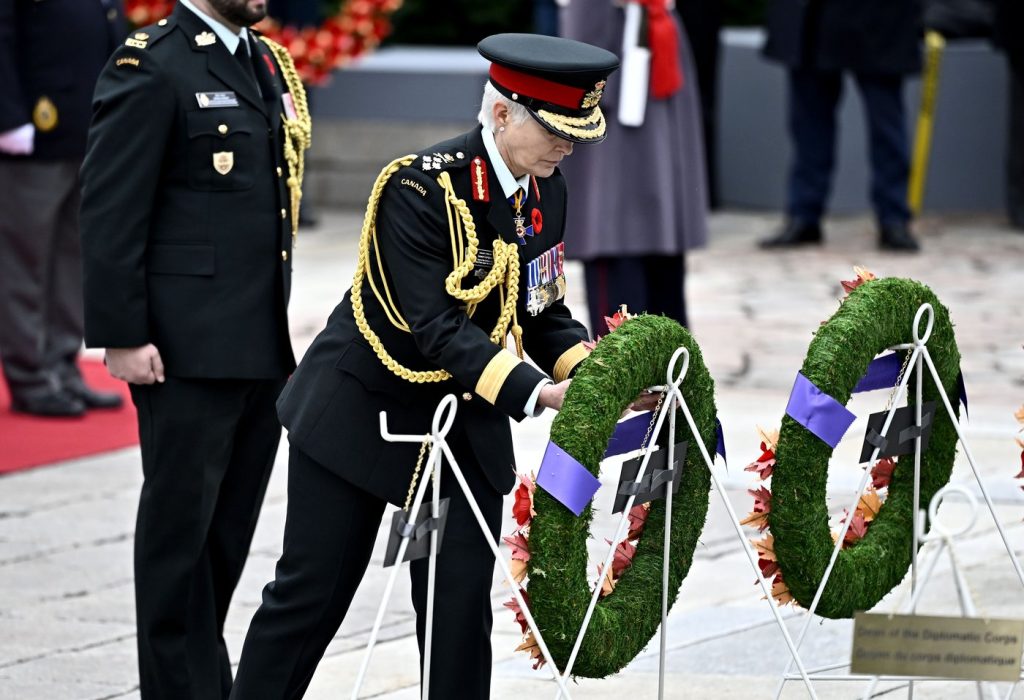OTTAWA — Eight decades after the end of World War II, the number of surviving veterans has significantly declined, now standing at just a few thousand. According to Veterans Affairs Canada, as of this year, there are an estimated 3,691 surviving Canadian World War II veterans, comprising 667 women and 3,024 men. In addition, the estimated number of surviving veterans from the Korean War is 1,909. Previously, the government did not differentiate between these two wars in its War Service Veteran population statistics, announcing that there were approximately 7,300 veterans in 2024.
Jeff Noakes, a historian specializing in the Second World War at the Canadian War Museum, noted the urgency of preserving the memories of those who experienced the war firsthand. He emphasized that the events of the conflict are shifting from lived history—where people can recount their personal experiences—to a point where the opportunity to engage with witnesses is dwindling. Many individuals who were children when the war ended are now in their eighties.
Beyond the individual stories of veterans, Noakes highlighted the broader experiences faced by Canadians during this tumultuous time. Rationing, government restrictions under the War Measures Act, and the internment of Japanese, Italian, and other Canadians perceived as threats were part of the national landscape. The Canadian War Museum has embarked on a mission to document these personal accounts, featuring a special exhibition titled “Last Voices of the Second World War,” currently open to the public until January 18.
World War II, which lasted from 1939 to 1945, resulted in the sacrifice of over 45,000 Canadian service members, with more than 55,000 wounded while fighting against Adolf Hitler’s Nazi Germany. As Remembrance Day approaches, the nation reflects on these significant historical events, marking the eighth anniversary of the end of this major conflict, which concluded in Europe on May 8, 1945, and in the Pacific on August 15, 1945.
This year’s national Remembrance Day ceremony will be notable as Chief Justice Richard Wagner steps in for Governor General Mary Simon, who is recuperating from a respiratory virus. Dignitaries, including Prime Minister Mark Carney and Chief of the Defence Staff Gen. Jennie Carignan, will gather at the National War Memorial in Ottawa. Additionally, Nancy Payne, this year’s National Silver Cross Mother, will lay a wreath on behalf of Canadian mothers who have lost children due to military service, honoring her son who was killed in Afghanistan in 2006.
The federal government is keen to highlight the Canadian military's contributions throughout the Americas this Remembrance Day. Lt.-Col. Carl Gauthier voiced this sentiment during a Senate ceremony held last week, stating that the military's efforts at home and abroad reflect Canada’s commitment to being a good neighbor and allies. He underscored the various roles that veterans have played in responding to domestic emergencies and natural disasters, from Prairie floods to maritime storms and humanitarian crises.
Moreover, this year marks the 25th anniversary of Canada's Unknown Soldier's entombment—a tribute to a fallen First World War soldier whose identity remains unknown—serving as a constant reminder of the more than 118,000 Canadians who have sacrificed their lives in service to their country. This reflection on sacrifice and service is especially poignant as the nation commemorates those who fought in both World Wars and continues to honor their legacy today.











